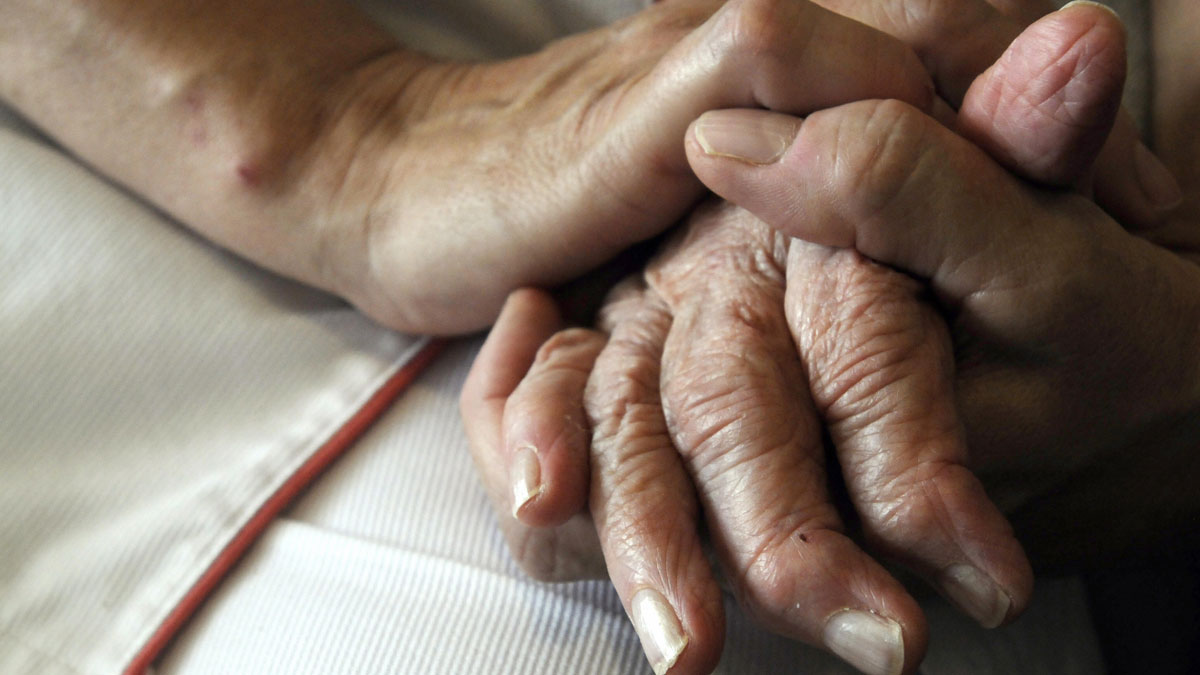Research reveals link between dementia gene and ‘severe Covid-19’
Dementia patients ‘twice as likely’ to suffer severe coronavirus symptoms

A free daily email with the biggest news stories of the day – and the best features from TheWeek.com
You are now subscribed
Your newsletter sign-up was successful
People who are genetically predisposed to dementia have a higher risk of severe coronavirus symptoms, researchers have revealed.
The study, published in Journal of Gerontology: Medical Sciences, says Europeans with two faulty copies of a gene known as APOE e4, a variant that makes dementia more likely, are more than twice as likely to develop severe coronavirus.
“It is not just age: this is an example of a specific gene variant causing vulnerability in some people,” David Melzer, a professor of epidemiology and public health at Exeter University and a co-author of the study, told The Guardian.
The Week
Escape your echo chamber. Get the facts behind the news, plus analysis from multiple perspectives.

Sign up for The Week's Free Newsletters
From our morning news briefing to a weekly Good News Newsletter, get the best of The Week delivered directly to your inbox.
From our morning news briefing to a weekly Good News Newsletter, get the best of The Week delivered directly to your inbox.
Limits to the study mean that while the link between dementia and coronavirus is likely, it has not yet been definitively proved, professor Tara Spires-Jones, deputy director at the Centre for Discovery Brain Sciences at the University of Edinburgh, told The Times.
“The scientists did a thorough job of trying to control for other things associated with ApoE4 that could account for the risk, but it is still possible that there is an unknown related factor causing the increased risk.”
However, Spires-Jones added, understanding that faulty ApoE in the immune system increases the severity of the disease is something researchers “may be able to harness... to develop effective treatments”.
Official statistics show that dementia is the leading underlying condition for Covid-19 deaths and is present in a fifth of people who die with the virus, according to the Alzheimer’s Society.
A free daily email with the biggest news stories of the day – and the best features from TheWeek.com
–––––––––––––––––––––––––––––––For a round-up of the most important stories from around the world - and a concise, refreshing and balanced take on the week’s news agenda - try The Week magazine. Start your trial subscription today –––––––––––––––––––––––––––––––
-
 6 exquisite homes with vast acreage
6 exquisite homes with vast acreageFeature Featuring an off-the-grid contemporary home in New Mexico and lakefront farmhouse in Massachusetts
-
 Film reviews: ‘Wuthering Heights,’ ‘Good Luck, Have Fun, Don’t Die,’ and ‘Sirat’
Film reviews: ‘Wuthering Heights,’ ‘Good Luck, Have Fun, Don’t Die,’ and ‘Sirat’Feature An inconvenient love torments a would-be couple, a gonzo time traveler seeks to save humanity from AI, and a father’s desperate search goes deeply sideways
-
 Political cartoons for February 16
Political cartoons for February 16Cartoons Monday’s political cartoons include President's Day, a valentine from the Epstein files, and more
-
 Epstein files topple law CEO, roil UK government
Epstein files topple law CEO, roil UK governmentSpeed Read Peter Mandelson, Britain’s former ambassador to the US, is caught up in the scandal
-
 Iran and US prepare to meet after skirmishes
Iran and US prepare to meet after skirmishesSpeed Read The incident comes amid heightened tensions in the Middle East
-
 Israel retrieves final hostage’s body from Gaza
Israel retrieves final hostage’s body from GazaSpeed Read The 24-year-old police officer was killed during the initial Hamas attack
-
 China’s Xi targets top general in growing purge
China’s Xi targets top general in growing purgeSpeed Read Zhang Youxia is being investigated over ‘grave violations’ of the law
-
 Panama and Canada are negotiating over a crucial copper mine
Panama and Canada are negotiating over a crucial copper mineIn the Spotlight Panama is set to make a final decision on the mine this summer
-
 Why Greenland’s natural resources are nearly impossible to mine
Why Greenland’s natural resources are nearly impossible to mineThe Explainer The country’s natural landscape makes the task extremely difficult
-
 Iran cuts internet as protests escalate
Iran cuts internet as protests escalateSpeed Reada Government buildings across the country have been set on fire
-
 US nabs ‘shadow’ tanker claimed by Russia
US nabs ‘shadow’ tanker claimed by RussiaSpeed Read The ship was one of two vessels seized by the US military